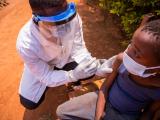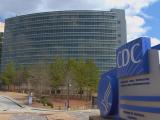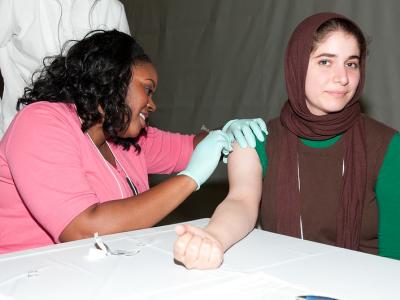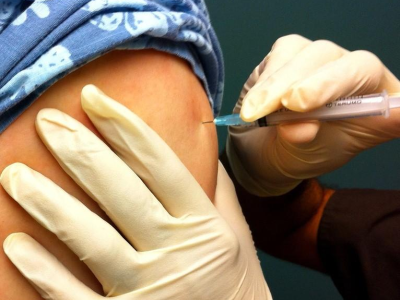Early in the COVID-19 pandemic, only 1% of Black men with untreated nonmetastatic prostate cancer had their prostates partially or completely removed, compared with 26% of White men, reveals a multicenter study yesterday in JAMA Oncology.
In spring 2020, much routine medical care was deferred to conserve resources and protect patients and providers from infection. All specialties, including oncology, delayed nonemergency care during that time, the authors noted, although there were concerns that COVID-19 could widen health disparities.
One in seven Black men develop prostate cancer, and they are more likely than White men to be diagnosed with advanced prostate cancer and die of the disease, according to the researchers.
Led by researchers at Fox Chase Cancer Center in Philadelphia, the retrospective cohort study involved comparing prostatectomy rates in Black and White men before and during the pandemic (378 from Mar 11 to May 10, 2019, and 269 from Mar 16 to May 1, 2020). Among the 647 total men, 26.6% were Black, and 73.4% were White.
Less treatment, despite higher PSA levels
Black men were significantly less likely than their White peers to undergo prostatectomy during the pandemic (1 of 76 [1.3%] vs 50 of 193 [25.9%]), even though they had similar COVID-19 risk factors, prostate cancer Gleason grade groups, and rates of prostatectomy before the pandemic (17 of 96 Black men [17.7%] vs 54 of 282 [19.1%]). The Black patients also tended to be younger than the White patients, making them even more of a priority for surgery, the authors said.
During the pandemic, Black men saw a 90.9% lower rate of prostatectomy, compared with only a 17.4% reduction in White men. After a multivariable analysis adjusted for high-risk disease and age, White race remained significantly tied to receipt of surgery early in the pandemic (odds ratio [OR], 30.48).
Relative to White men, Black men had higher median prostate-specific antigen (PSA) concentrations before biopsy (8.8 vs 7.2 nanograms per milliliter). High PSA levels can indicate prostate cancer, enlargement, or inflammation.
The OR for likelihood of prostatectomy was 0.06 for Black men and 1.41 for their White counterparts during the pandemic relative to before. Changes in surgical volume amid the pandemic differed by site, from a 33% increase to a total shutdown, with facilities serving a greater share of Black patients seeing the biggest decreases in cancer surgery.
Black men were also less likely than their White peers to transfer care after their biopsy and receive all of of their care at a single institution (45.6% vs 82.9%).
'If now is not the time for change, when is?'
The study authors said that while nonmetastatic prostate cancer surgery can be safely delayed for 6 months to a year, the findings suggest systemic inequities in healthcare and across medical specialties. In oncology in particular, cancer rates and outcomes vary significantly by race, they added.
"Public health efforts are needed to fully recognize the unintended consequence of diversion of cancer resources to the COVID-19 pandemic to develop balanced mitigation strategies as viral rates continue to fluctuate," the researchers concluded.
In a commentary in the same journal, Randy Vince, Jr., MD, of the University of Michigan at Ann Arbor, called on the medical profession to recognize that even if policies don't use racist terminology, they often have racial implications, especially in healthcare, and that the country's enormous wealth gap has left the most oppressed racial populations in poverty.
"It would be a mistake to assume that these disparities have nothing to do with the racial/ethnic disparities seen in our medical system," he wrote. "We will not make progress unless we take the time to acknowledge our country’s foundation—a foundation that, throughout history, has promoted one group of people as superior to others through its laws and policies."
Vince encouraged healthcare professionals and the public alike to listen to the experiences of oppressed community members without prejudice in hopes of breaking the cycle of intergenerational racism, poverty, and trauma.
"As members of a profession, we physicians have tremendous social and political capital; it is time for us to leverage this capital to make the changes needed to promote equity," he wrote. "So, I ask again—if now is not the time for change, when is?"



















